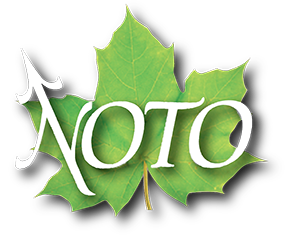Fuel Education
& Safety
Several different types of fuels are used daily for transportation, heating, cooking, and so much more. These fuels include natural gas, propane, butane, gasoline, and diesel.
The Technical Standards and Safety Authority (TSSA) regulates the transportation, storage, handling and use of these fuels in Ontario.
TSSA
TSSA issues licenses to fuel facilities, registers contractors and certifies tradespeople who install and service equipment. They also perform equipment approvals and conduct inspections to ensure safe handling and use of fuel.
The Fuels Safety Program ensures that all fuels are used, handled, transported and stored in accordance with the Technical Standards and Safety Act, and other applicable regulations, codes and standards.
Private Fuel Outlets (PFO)
A private fuel outlet refers to any premise where gasoline or an associated product is put into fuel tanks of motor vehicles or into portable containers. This definition excludes retail outlets, marinas and bulk plants. Several tourist operators have fuel tanks that are considered PFOs.
PFOs include campgrounds, rental cottages, or fishing camps where fuel is provided as part of the rental agreement for boats, ATVs, or snowmobiles.
TSSA regulates PFOs under O. Reg. 217/01. This allows TSSA to conduct design reviews and inspections to ensure that all fuel safety regulations are met, as they apply to handling fuel on PFO sites as well.
Typical inspections include a full inspection of fuel storage and dispensing equipment (tanks, sumps, lines, pumps, etc.), a review of maintenance records, logs, and standard operating procedures, a review of attendance responsibilities, records of various test results (dip tests, pressure and leak tests, etc.), and a review of staff training.
Click here for tips on how to prepare for an inspection
Selling Fuel
The 2020 summer season saw an immense increase of recreational boaters on our waterways in some areas of Ontario. More boaters means more people that could potentially come to your dock looking for fuel.
NOTO and TSSA want to remind Camp operators, if you wish to sell fuel to anyone other than your guests, you must have a marina license. This would move you from a Private Fuel Outlet (PFO) that requires no license, to a marina.
A marina license is required if you are dispensing fuel directly into the fuel tanks of watercraft. A full serve gas station license is required if you are dispensing fuel into vehicles or portable containers for the public.
Remember, these additional licenses will come with additional regulations and requirements that you will have to comply with.
To learn more about how to apply for these additional licenses you can visit the TSSA website.
Fuel Safety Tips
- Do not allow flames, sparks, smoking, or other sources of ignition near the fuel storage and handling areas. Gas vapours are heavier than air and can travel long distances to an ignition source.
- Conduct dip tests, pressure tests, precision leak tests and cathodic protection tests on a regular basis.
- Inspect your tank(s) and surrounding areas regularly for damage, leaks, and spills. If your tank needs repair, contact a TSSA certified tradesperson to service the tank, or have it replaced completely.
- Follow safety recommendations of your fuel supplier during delivery.
- Report fuel spills according to environmental health and safety regulations.
- Use absorbent materials to clean up and prevent the spill from spreading.
- Avoiding breathing in vapour and mists. Wash skin thoroughly with soap and water if contact occurs.
- Remove any clothing that is wet with fuel and allow the fuel to evaporate completely before washing.
- Never use gasoline as a cleaning agent.
- Always know the location of the emergency stop, spill kit and fire extinguishers and how to use them.
- Ensure all staff have proper training. A list of items staff should know can be found here: TSSA Training Checklist
For additional safety tips, visit the Canadian Center for Occupational Health and Safety website.
Reporting and Incident
Under provincial regulations, any spills of pollutants must immediately be reported to the Ontario’s Spill Action Center. Once you have reported the spill to the Spills Action Center, you must report to your local municipality, and the owner &/or person in control of the substance.
The Spill Action Center is Available 24/7 at the Following Numbers:
- Tel: 416-325-3000
- Toll Free: 1-800-268-6060
- Toll Free TTY: 1-855-889-5775
The following items are what you can expect from the Spill Action Center:
You Will Be Asked to Report:
- Your name and phone number
- Name and phone number of the person or company in control of the product spilled
- Date, time and location of the spill
- Duration of the spill (if known) and whether the spill is ongoing
- Type and quantity of pollutant spilled, including hazard level or toxicity information
- Source of the spill and information on the cause
- Description of adverse effects
- Environmental conditions that affect the spill (weather, traffic, etc.)
- Actions being taken to respond
- Other agencies and parties responding
An Environmental Officer Will:
- Document the information and actions taken
- Assess the environmental and health impacts based on gathered information
- Ensure responsible parties respond to spill events as per their legislative responsibility
- Track and follow up on required cleanup activities
- Provide advice and information related to spills or environmental incidents
- Coordinate a response with other agencies, if needed
- Initiate government response when required
Additional information on regulatory spill reporting (Ontario Regulation 675/98), clean-up, environmental remediation, and spill cost recovery can be seen on the Ontario’s Spill Action Center page.
The following presentation was given by McDougall Energy and contains some very useful information about petroleum safety: Important Fuel Storage Information



